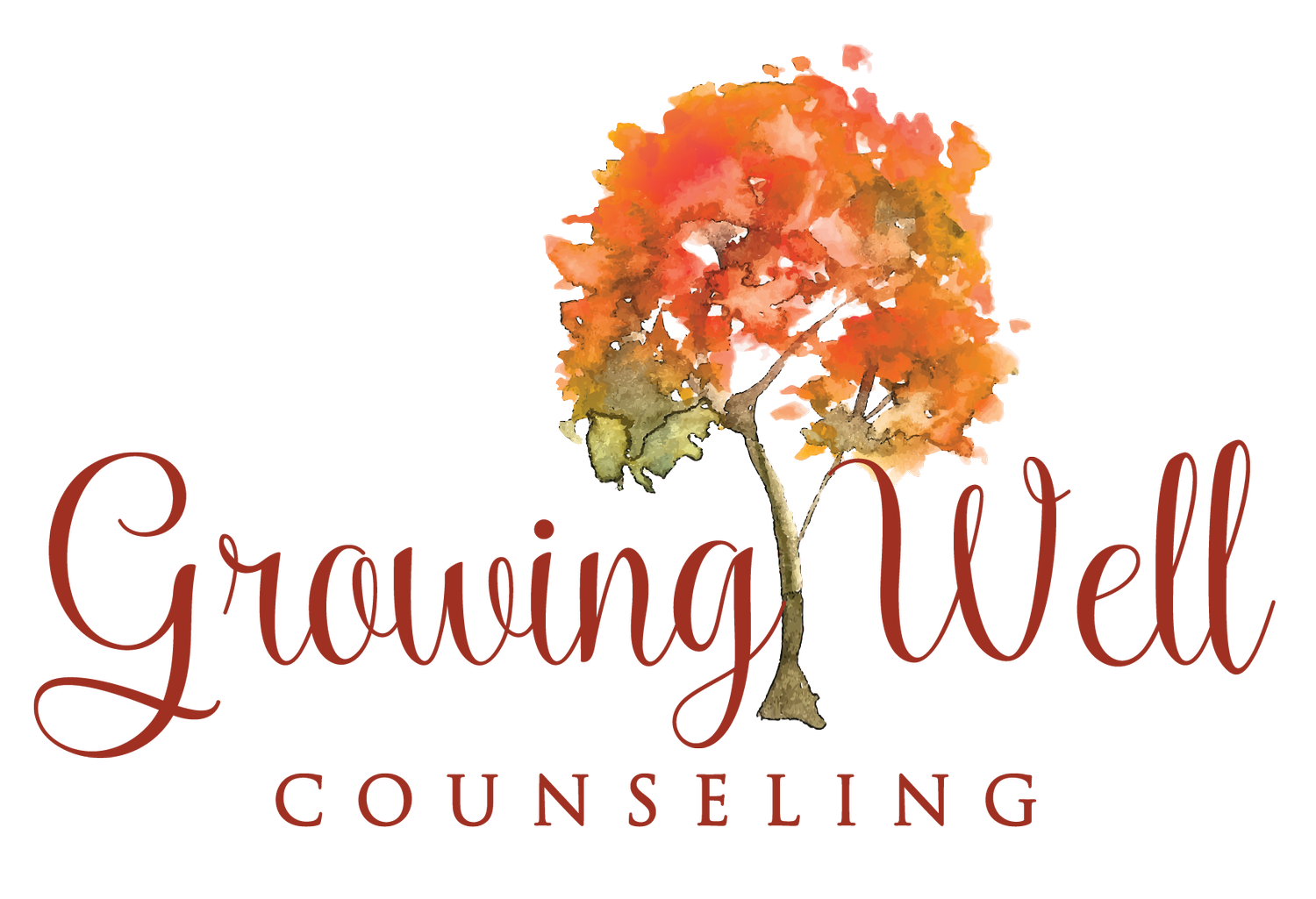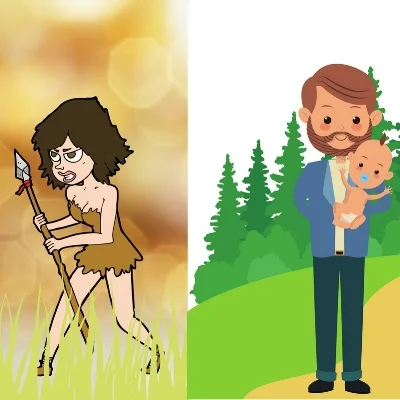Those of you who know me personally know that I love analogies. My creative mind loves to wander and I was born a story-teller. I often use analogy in my practice and weave these abstract examples into my work with expectant and postpartum families. One of my favorites is the cave family. Neurobiologists know that during pregnancy and postpartum both mom and dad undergo hormonal and neurological changes that influence their relationship with each other, feelings about their growing family, and their interaction with their newest addition whom I’ll refer to as Cave Baby. Many of our shifts in our experience and perception remind me of those distant cave-dwelling relatives who had to navigate dangerous predators, harsh weather conditions and hunt for their next meal.
Many of the unexpected changes in the cave [now known as your modern American home] can be explained by looking to our primal ancestors.
Nesting- a cave woman would want to prepare her cave to ensure the cave baby didn’t slip and fall off any sharp rocks or other hazards, she also doesn’t want to be wandering around in the dark cave at night after the fire is out and trip while tending to her baby. I’m sure caves weren’t the most hygienic of our ancestors’ housing options so if you feel the urge to bust out the Mr. Clean or Clorox, that makes sense, too.
Worry about baby’s arrival- Cave mama needs to plan ahead! She needs a dry, warm, secure spot to keep primal-minded cave baby happy, fed and quiet. She needs a place to feed baby easily so she can fatten him up to survive the first winter. She needs to have a plan where she will deliver so she doesn’t leave a trail of her scent that would lead predators to the cave.
Feeling frustrated that it seems you are constantly holding or feeding baby to keep him quiet- Well, in those early weeks you often are! Baby has spent his entire being inside 98* of warm dark fluid, forever nourished by the placenta and surrounded by cave mom’s scent. Now all at once he is adjusting to shifting light, temperature, and gravity, the tactile sensation of clothing, the sensation of gravity, being lifted and put down, lying down, being held upright, and the two worst offenders- hunger and absence of mom’s pheromones! Either of these is likely to feel like a crisis to newborn cave baby who knows to be safe he must have an escape vehicle from predators [you got it, YOU!] because he can’t walk or run himself, and in order to survive the first long winter he must fatten up.
Any hunger pang can feel like the end of the world because in that primitive hind-brain, it sort of is. I often remind my clients that babies are not born with watches, they cannot tell time and they don’t understand how long it has been since they last ate.
Panic or urgency when baby cries-Do you want the loud cave baby to lure the saber-toothed tiger to your dwelling? Nope! Moms often describe their own infant’s cry as ear-piercing and highly disturbing, while seemingly able to tune out the cries of other babies. We are programmed to react to our own offspring’s needs in a fast and furious fashion because it serves us to protect our own young, and in more primitive times the entire family.
An increase in anxiety around possible dangers, more worry than you’re used to- well there’s more at stake now! If Cave Mom was nonchalant about random berries, small woodland creatures and fire, she might not be as likely to raise a good number of strong hunters- our caution in pregnancy and postpartum serves a purpose to keep our children safe from real or perceived threats. This urge to protect and be vigilant is not a weakness but your instincts showing through. When anxiety strikes we may experience more anxiety than is needed, but the anxiety itself serves a purpose, and in counseling we can work to tame the anxiety so it’s tolerable and serves you rather than takes from enjoying day to day life.
You may also feel fiercely protective and easily aggressive when a possible perceived threat comes about- your cave woman instincts come out to protect your offspring and you may find yourself more ferocious than ever before- of course you are, there’s more at risk now! Others may perceive you as overreacting, your partner may wonder what you are up to, but your fight-or-flight response is in overdrive to ensure you don’t snooze on the job protecting your little one from potential predators and other threats.
Feeling incredibly disorganized -It’s very common for moms [with each pregnancy and subsequent postpartum period] to feel disorganized because for your mama brain IT IS a massive time of reorganization, your neuronal pathways need to clear room for all your revised priorities, night-time waking, feeding, nourishing yourself and baby to perpetuate the cave family. The Cave doesn’t operate smoothly without a strong cave woman- we may not feel strong when our mind bounces from task to task or we suddenly misplace a word, however this isn’t a short-coming but evidence that we’re preparing for new priorities and tasks. Things will fall into place with rest and nourishment and we will again feel in control.
Dad feeling isolated or not-bonded- I often hear from moms or partners that the second parent feels detached or distant, sometimes inadequate. Cave dad may feel disconnected from cave mom and baby, however this is to some degree beneficial. If Cave Dad is all distracted feeling feelings about his growing family, he may not be as vigilant to predators, or he may be daydreaming about his growing pack of cave babies as the wild antelope herd passes by on a hunting trip. Dad needs to be focused on hunting and gathering efficiently so he can get back to the cave and feed and protect the cave family, all in preparation for surviving cave baby’s first winter.
Sometimes dads struggle to bond early on, they may feel it’s not their place, perhaps they didn’t get much paid leave and have to return to work days after baby arrives. For others they had no role model showing them how men nurture babies and aren’t sure where their place is. I remind families all the time that cave baby is much more useful to cave daddy later on when they are more interactive, when dad can teach cave baby to run, jump, and hide [or ride a trike!] to build hunting towers [or lego towers] and track animals [or pets in the home]. Cave Dad may find bonding comes later on, and that is completely normal.
As you can see, there are so many instances in which the cave family mirrors modern American families, in our isolated society it’s easy to feel and to a degree be disconnected from other families, we all drive past our coordinating mailboxes up our concrete paths into our brick and mortar caves without community interaction. If we want community we must venture out into the wild and seek it out whether it’s a 30-minute library story time or a paid baby gymnastics activity, both of which still offer an unspoken distance to overcome between bonding with other moms and families. Finding your village is no easy task, but an important one.



